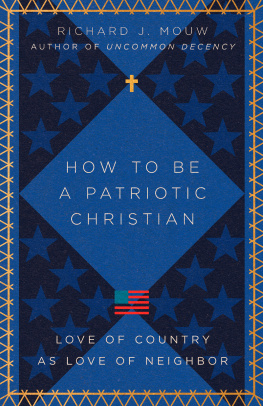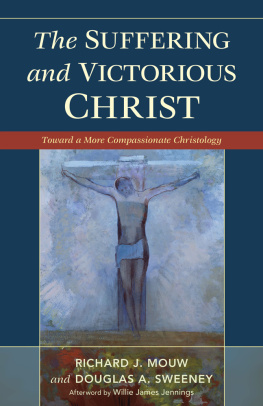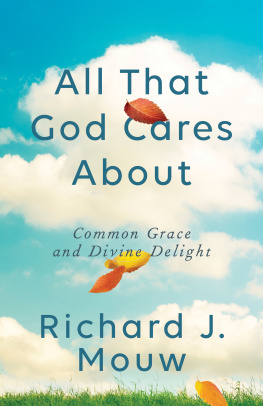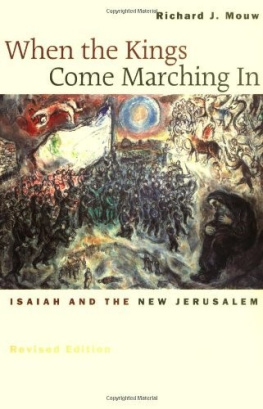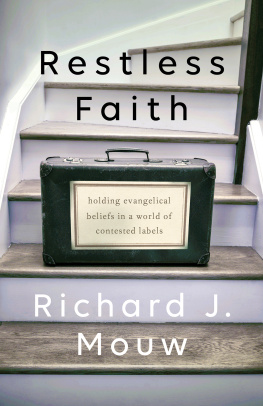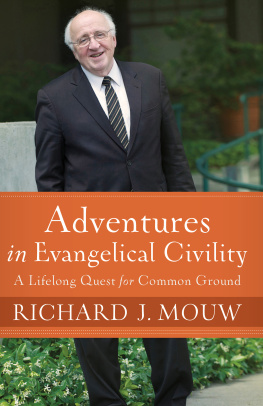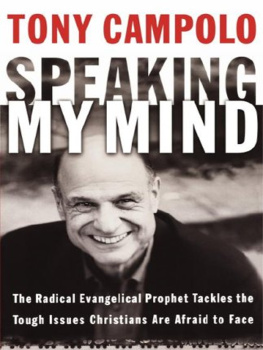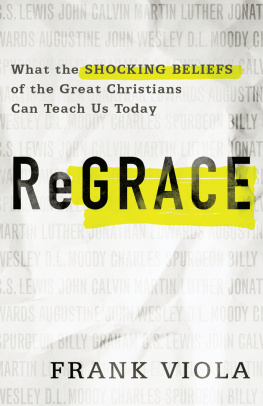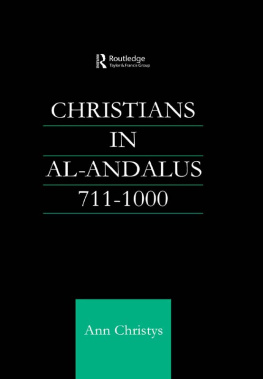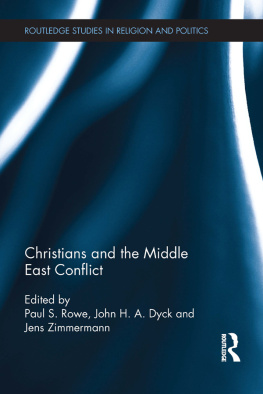7

Whats Good About Pluralism?
C hristian hearts must be open to other people. God wants that of us. That is what I have just been arguing. But just how open are we supposed to be ? We live today in the midst of many lifestyles, many systems of thoughtdont we run the risk of having our hearts pulled in so many different directions that we will finally have no center of our own?
That is an important concern. There is much about contemporary pluralism that frightens me. But there is also much that I find exciting from a Christian point of view.
Often when people encourage me in my efforts to prod evangelicals to think more clearly about the topic of pluralism, they will say something like this: We need to learn to cope more effectively with the increasing diversity in our society.
That word cope always catches my attention. My instinct is to challenge the idea of copingit makes it seem like all we can do is to give in to something that we must grudingly accept. But I fight agains that instinct. I have a pretty good idea why Christian people talk about coping in this context. They are thinking of all the strange things that go on around usthese days it seems that no idea or practice is too far out to attract a glowing endorsement from some celebrity. The diversity of worldviews and lifestyles we encounter on a regular basis can be very bewildering. And when one is genuinely bewildered, being able to cope is the most one can hope for.
But pluralism is a slippery concept. It gets used in a number of different ways by people who analyze contemporary society. And not everything that is called pluralistic is necessarily bad from a Christian point of view.
Pluralism is many-ism. When we use the word, we are pointing to some sort of diversity. How we are to react to that diversity depends on what kind of many-ness we are singling out for attention. In some cases, pluralism isnt just something to cope withit is a thing to be celebrated.
God and Diversity
At a meeting of theologians the conversation somehow got around to the question of life on other planets. This is not a subject that I have ever taken very seriously, so I was surprised when a respected theologian spoke enthusiastically about the possibility of intelligent life in other parts of the universe. When I questioned him further, his response was a thoughtful one: I believe that God has an infinite imagination, dont you? And if that is so, why should we assume that God would want to limit the creation to what we see around us? That argument is worth pondering. And we can also apply it to the question of diversity within our own world. God has already demonstrated a rich imagination, simply by producing the creatures we see around us.
The South African politician Nic Diederichsa prominent leader during the apartheid eraonce made a rather provocative observation: God, he said, dislikes deadly uniformity. I hate to admit that I like that comment, since Diederichs was a perverse thinker who helped to create the racist ideology in South Africa. Defending the separate development of the races, he argued that God wills the existence of many different races; that is why we must not allow interracial mingling. What
The ugliness of Diederichss intentions ought not to blind us to the truth of his theological premise. The God of the Bible does seem to dislike deadly uniformity. Whenever I read the creation account in Genesis 1, for example, I am taken with the delight that God expresses as he calls the worlds rich diversity into existence. Gods mood seems positively playful as he anticipates all that multiplication: Let the waters bring forth swarms of living creatures! Be fruitful and multiply and fill the waters in the seas, and let birds multiply on the earth! Let the earth bring forth living creatures of every kind! (Genesis 1:20, 22, 24).
God has an infinite imagination. He loves diversity. And because of this, no Christian can oppose diversity as such. There are certain kinds of swarms in which God takes delight.
To say that we live in a pluralistic culture is simply to say that we are surrounded by plurality. And again: many-ness itself is not a bad thing.
But neither is many-ness necessarily a good thing. This is where Nic Diederichs went wrong. Having pointed to Gods love of diversity, he tries to sneak over on us the wrongheaded notion that God hates to see the mixing and combining of diverse races.
We have to be discerning in our endorsement of many-ness. Some pluralities are pleasing to God, but others are not. God takes delight in the diversity of animal lifebetter many different kinds of animal than one dull, uniform species. But, on the other hand, God does not take delight in the existence of many different kinds of diseases, or many forms of human perversity. The fallen world swarms with many things that do not please him.
The Pluralistic Consciousness
There have always been many swarms in the world. In that sense, coping with many-ness is not a new experience. But it is also true that we are experiencing pluralism in new ways these days. Many scholars insist that a pluralistic consciousness is one of the unique characteristics of contemporary life.
What is it that makes our present-day encounter with pluralism so special? It is the fact that we are immersed in a culture of options.
Think of someone who lived in Western Europe during the Middle Ages. As the daughter of a peasant Christian family, she had few real choices about how she would live her life. She would likely marry and bear childrenthe only alternative would be to join a religious order. She would never travel more than twenty miles from the house where she was born. It was unthinkable that she would ever enjoy the luxuries known to the wealthy. Whatever her private opinions or attitudes about religious matters, she would attend church regularlyand there was no question about which church it would be, since there were no alternatives.
Choosing what she would be never occurred to such a person. She was locked into her station in life.
By the time of the Reformation, things had begun to change. One obvious difference was that more and more people were faced with the choice of what form of religion (or nonreligion) to embrace. Geographical mobility was on the increase. Some folks were even able to move from one economic class to another. New trades and professions meant that for many people the question of vocation became a matter of conscious deliberation.
Todays range of choices is so great, though, that quantitative terms alone are not adequate to describe the change that has taken place. Choosing has become a way of life. Do I want to continue in my present profession or go into something completely different? In which state shall I liveor should I try another country? What part of the world shall I visit next? What do I want my next spouse to be like? Which religion best serves my present needs?
Immersion in a world of seemingly infinite optionsthis is the pluralistic consciousness. And our unique awareness of a plurality of alternatives is not a totally bad thing. We may not like the fact that everything seems to be up for grabs these days, but we certainly want to preserve our range of choices about what we most treasure. Whenever we Christians celebrate our freedom to worship God as we please and to live our lives in the light of our deepest convictions, we are actually rejoicing over our uniquely pluralistic consciousness.
Pluralism and Idolatry
When someone refers to our pluralistic society, then, we need to find out what is meant before we can respond properly. The fact is, the phrase is used in a number of different ways. But it will help to think briefly about how Christians should evaluate two very prevalent forms of pluralism.


